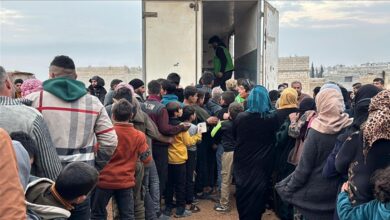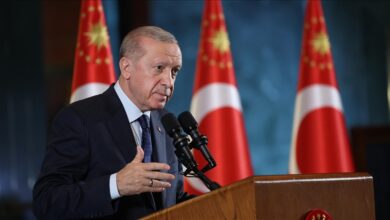
United Nations: European countries deport asylum seekers at their sea and land borders
In a statement, the United Nations expressed its concern over the increasing reports of European countries deporting refugees and asylum seekers at their sea and land borders.
Assistant United Nations High Commissioner for Protection Gillian Triggs said: “The United Nations High Commissioner for Refugees has received a continuous large number of reports on some European countries restricting access to asylum, returning refugees after their arrival to land or territorial waters, and using violence against them at the borders.”
She added that migrants are often arrested and later returned to neighboring countries without their asylum request being considered, and she mentioned that many migrants report “abuse and use of violence against them” by government officials.
The United Nations High Commissioner for Refugees stated that the number of arrivals to the European Union is decreasing over the years, and there were 95,000 last year, which is 23 percent less than in 2019 and 33 percent less than 2018, when the number of migrants arriving in European Union countries by land or sea reached
At that time 141 thousand people.
The student of the Syrian Center for Justice and Accountability, in a statement, was the Prosecutor of the International Criminal Court: “to investigate the crimes against humanity committed by Greece against the refugees at the border,” at a time when the United Nations Human Rights Committee held Italy responsible for the deaths of more than 200 migrants among them.
Syrian and Syrian Palestinian refugees in an accident involving the Navy in 2013.
The Center accused Greece of having adopted, since 2016, a series of legislative, executive and judicial practices aimed at stripping the refugees of their rights, which increases their misery and the possibility of their death, at a time when the refugees in the Greek camps suffer from a shortage of food and water, and they live in dirty tents that are exposed to the elements.
In that widespread flooding, despite Greece receiving hundreds of millions of euros from the European Union to support refugees.




